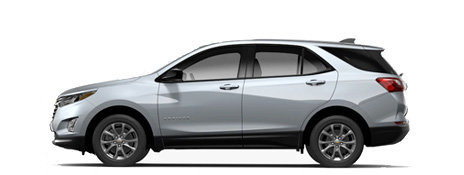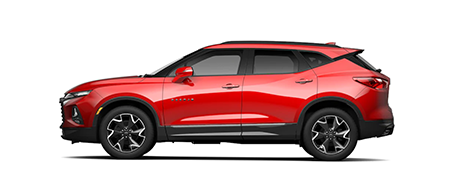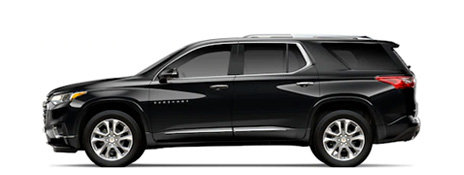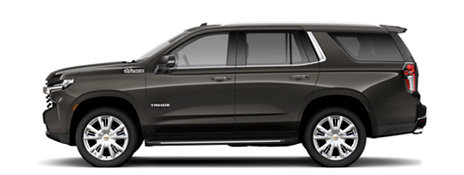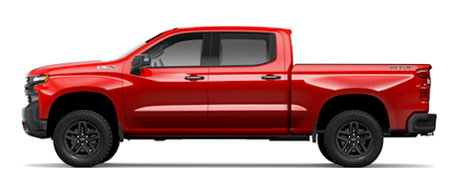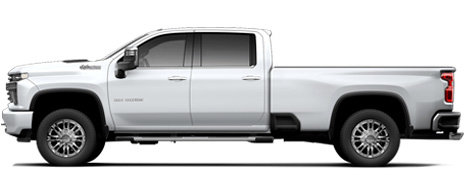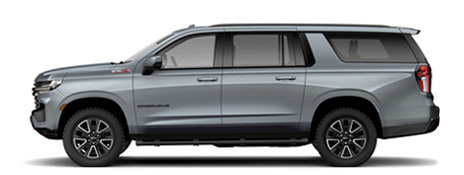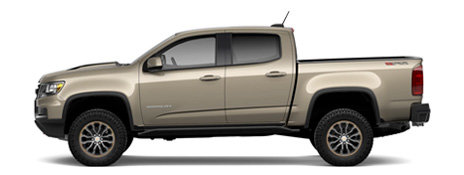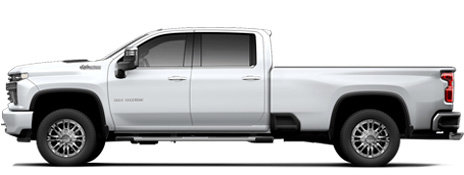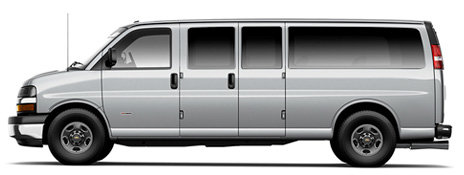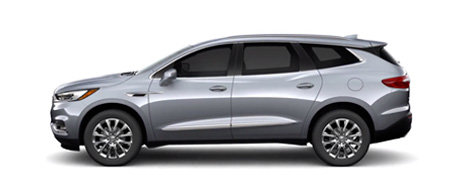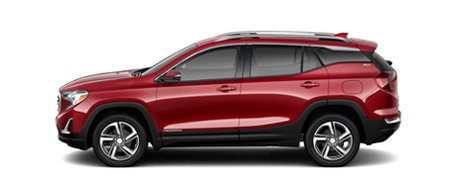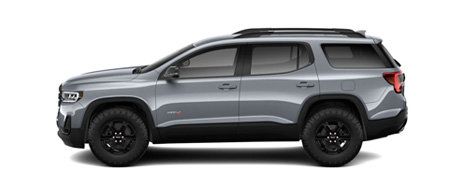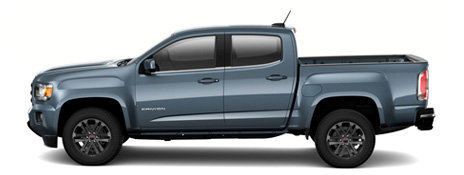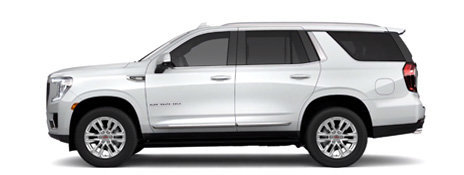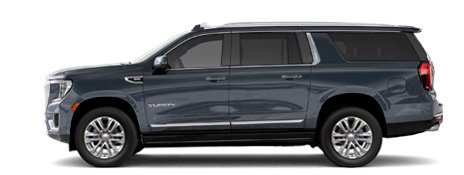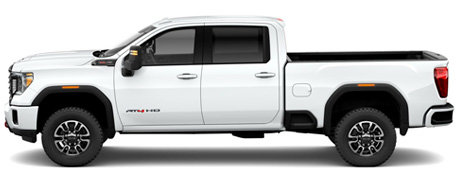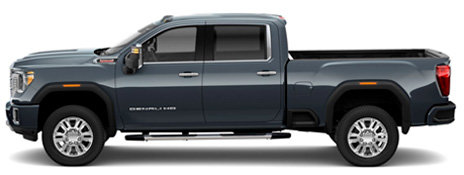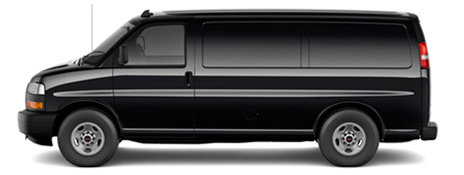FREQUENTLY ASKED QUESTIONS ABOUT TOWING
We help you at Chevrolet Buick GMC West Island
How do I choose the right towing equipment?
Choosing the right hitch and making the right electrical connections affect your vehicle's handling, cornering, and braking, and lets other drivers know where you’re going. Before choosing a hitch or tow group, you should be aware of the towing capabilities specific to your Chevrolet, Buick, or GMC vehicle or truck. Most of our vehicles and trucks offer a range of standard and available equipment that improves towing. Features such as a large capacity cooling system and telescopic tow mirrors may be available. Contact us and come see us at Chevrolet Buick GMC West Island for more information on the model that interests you.
What are the types of coupling?
Traditional hitch: This is a hitch ball mounted on a hitch support or a step bumper. The tow balls are available in several sizes. Make sure the diameter of the hitch ball matches the hitch head of the trailer. Also check that the ball equals or exceeds the gross rated capacity of the trailer.
Load distribution hitch: This type of hitch distributes the load on the drawbar by means of spring bars to shift part of the weight of the hitch forward, on the front axle of the towing vehicle, and towards the rear, on the trailer axles.
Fifth wheel coupling and gooseneck coupling: These are designed for towing heavy loads. Located in the truck body, these hitches place the weight on the trailer hitch pin above the rear axle of the truck or slightly in front. Fifth wheel couplings and gooseneck hitches are most commonly used with touring trailers, horse trailers, and other large trailers.
At Chevrolet Buick GMC West Island, we can help you calculate the maximum allowable payload and the gross vehicle weight rating (GVWR) required for your fifth wheel assignment. The weight of all additional equipment and all passengers, except the driver, must be subtracted from the payload to determine the maximum load available at the kingpin.
What is the gross vehicle weight rating (GVWR)?
The gross vehicle weight rating (GVWR) corresponds to the maximum weight of the vehicle itself (i.e. the vehicle with its equipment, fuel, load, passengers, and the drawbar weight of the trailer). In other words, the GVWR must always be equal to or greater than the weight of your vehicle, passengers, cargo, and drawbar weight.
What is the gross weight of the trailer?
The gross weight of the trailer corresponds to the weight of the trailer with its load.
What is the combined gross nominal weight?
The combined gross nominal weight is the maximum allowable weight of the truck and trailer, including all equipment, total payload, fuel, fluids, and passengers. This is the total weight of the vehicle and trailer combination, once loaded and ready to go. You must not exceed the PNBC of your vehicle when you pull a trailer.
What is the tongue weight of the trailer and weight of the kingpin?
The drawbar weight of the trailer and the weight of the coupling pin correspond respectively to the weight exerted on the coupling ball and on the coupling fifth wheel. It therefore corresponds to the force applied downwards from the coupling of the trailer to the vehicle hitch. To calculate the drawbar weight, place the drawbar on the trailer on an appropriate scale. For normal towing, the drawbar weight must be 10% to 15% of the weight of the laden trailer. For towing with a gooseneck hitch / fifth wheel coupling, the drawbar weight must be at least 15% of the weight of the laden trailer.
What is the axle / differential ratio?
The axle ratio refers to the relationship between the revolutions per minute of the drive shaft and the revolutions per minute of the drive axle. The rear axle ratio is used to allow pickup buyers to choose the truck that best suits their performance and load transport needs. A higher axle ratio increases engine speed, which translates into greater transport power but lower speed and fuel efficiency. In contrast, a lower axle ratio keeps the engine speed lower, which provides lower towing capacity but higher fuel efficiency.
How to choose the right axle or differential ratio?
We recommend that you review your daily needs. The greater the combined weight of the truck and trailer, the more the vehicle has to work. If you plan on towing a small boat a few times a year, a truck or SUV with a lower axle ratio can handle the occasional towing requirement while providing higher fuel efficiency the rest of the time. On the other hand, if you need to tow construction equipment every day, we certainly recommend a truck with a higher axle ratio and external engine oil and gearbox coolers.
How does a trailer brake work?
Trailer brakes are required for a trailer over 2,000 lb (907 kg) for models like the GMC Sierra, Yukon, and Yukon XL, and the Chevrolet Silverado, Suburban, and Tahoe, and over 1,000 lb (454 kg) for all other models. The most common trailer braking systems are inertia brakes (used primarily on boat trailers) and electric brakes (often used on touring, horse, and vehicle transport trailers).
Inertia brakes are an independent hydraulic braking system on the trailer, operated during deceleration while the trailer hitch head pushes on the hitch ball. The electric trailer brake system uses a brake control module mounted inside the vehicle or truck; it works by detecting the vehicle brakes then applying the trailer brakes.
What is a trailer swaying device?
Working in conjunction with the electronic stability control system and with the integrated trailer brake control (if so equipped), the trailer sway control is capable of detecting trailer sway, and can apply the vehicle and trailer brakes automatically. If necessary, it can also reduce the engine power to help you take control of the situation. Ask for the availability of this system in our Chevrolet and GMC models at Chevrolet Buick GMC West Island.
What is the MAX tow group?
Available for several Chevrolet and GMC models, the MAX tow group offers increased towing capacity compared to the standard tow group. This group usually contains a rear locking differential, a towing suspension group, an improved cooling radiator, new shock absorber calibration, reinforced rear springs, trailer brake control, and more.
How can the technology group help you?
Available on multiple trucks, this system incorporates multiple cameras and provides up to 15 views of the areas around your vehicle and trailer. These views make it easier to align your trailer and hitch, and increase confidence when towing.
The views of these cameras are easily accessible by selecting the Camera application on the touch screen. There’s a view of the body and trailer, view of the front side, view of the transparent trailer, view of the coupling, rear side view, view rear of trailer, view inside trailer, rear view mirror camera, front camera view, rear camera view, peripheral view, bowl view, and front and rear vertical views. Contact us today to learn more about the available technologies at Chevrolet Buick GMC West Island.
